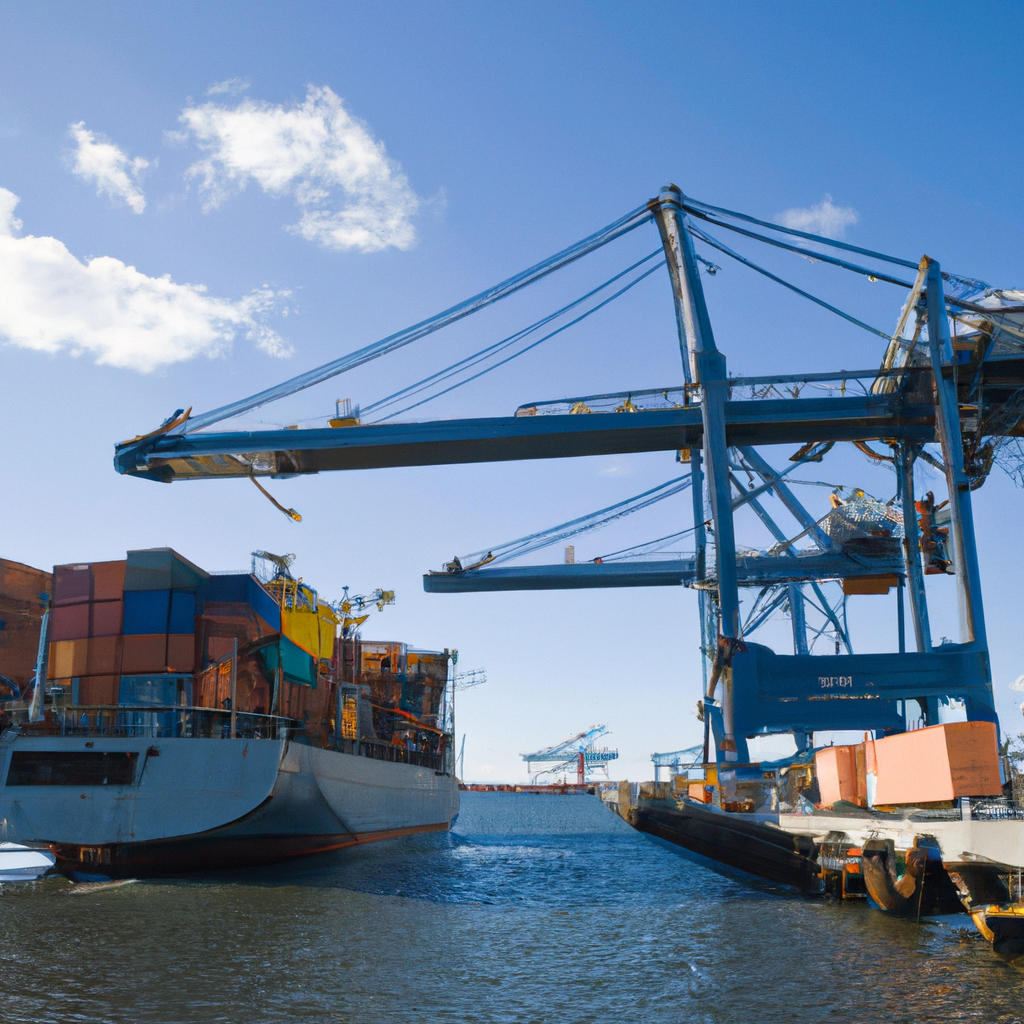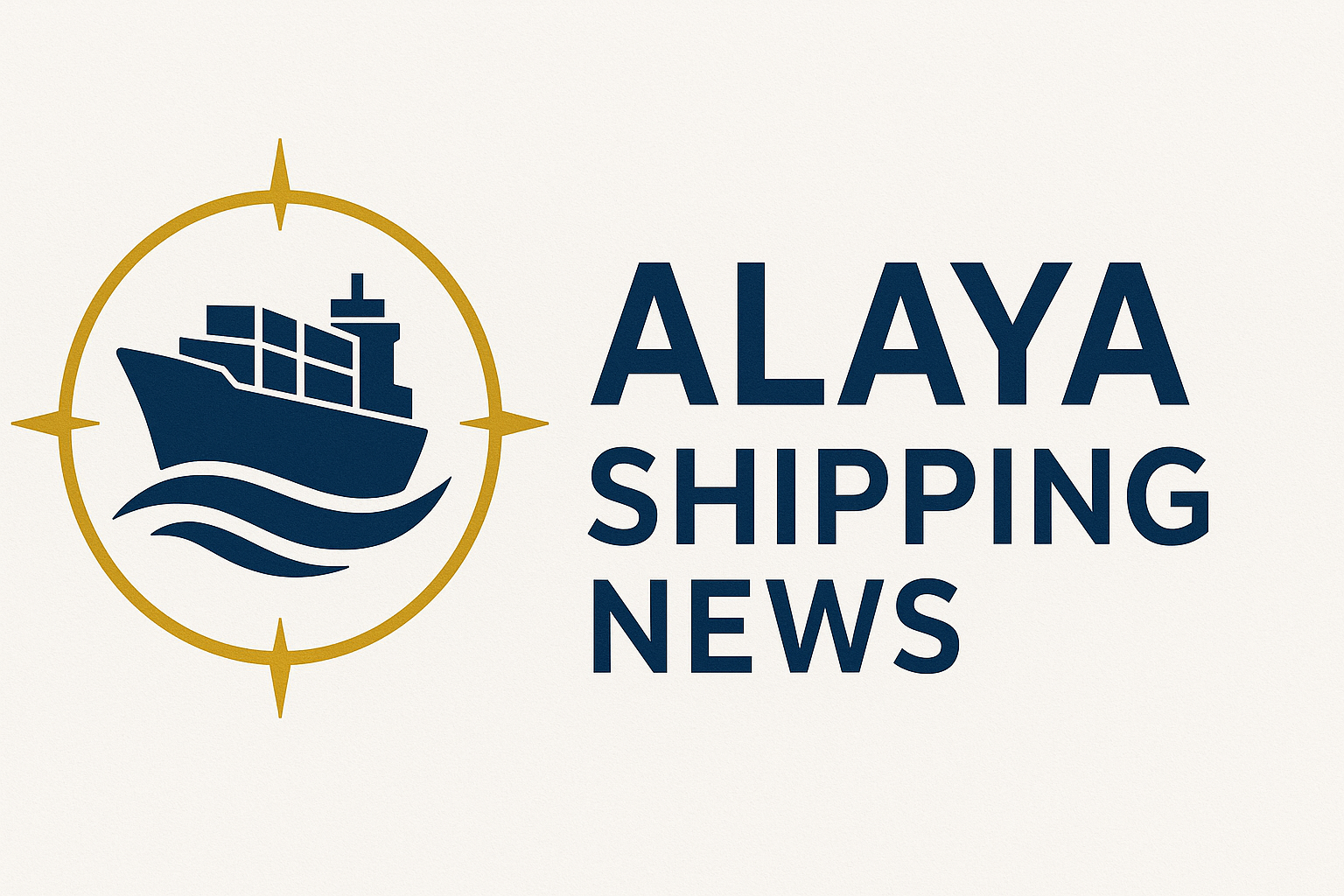*Published: 2025-08-19 19:10 (Europe/Oslo)*

**Baltimore Port’s Main Shipping Channel Closure: A Ripple Effect on Global Maritime Operations**
The recent explosion aboard a bulk carrier in Baltimore’s main shipping channel has sent shockwaves through the maritime industry, underscoring vulnerabilities in global supply chains and highlighting the urgent need for enhanced safety protocols. The incident, which has led to the closure of a critical maritime artery, comes at a time when the global shipping industry is already grappling with disruptions from geopolitical tensions and evolving regulatory landscapes. This closure not only affects the local economy but also has broader implications for international trade and maritime insurance.
**Economic Impact and Shipping Rates**
The closure of Baltimore’s main shipping channel is poised to have significant economic repercussions. As one of the busiest ports on the East Coast, Baltimore plays a crucial role in the movement of goods across the Atlantic. According to gCaptain, the explosion and subsequent channel closure have already caused delays in shipping schedules, which could lead to increased shipping rates as vessels are forced to reroute or wait for the channel to reopen. The congestion and delays can exacerbate existing supply chain issues, driving up costs for importers and exporters alike.
The ripple effects of this incident could extend beyond immediate logistical challenges. With the holiday season approaching, any prolonged disruption could lead to shortages of consumer goods, further straining an already stressed supply chain. The potential for increased shipping rates and delays underscores the need for ports to have robust contingency plans in place to mitigate the impact of such unforeseen events.
**Fleet Movements and Strategic Adjustments**
In response to the channel closure, shipping companies are making strategic adjustments to their fleet movements. Vessels that were scheduled to call at Baltimore are being redirected to other ports along the East Coast, such as New York and Norfolk. This shift not only affects the operational efficiency of shipping lines but also places additional pressure on neighboring ports, which may not have the capacity to handle the sudden influx of traffic.
The incident highlights the interconnected nature of global shipping networks and the need for flexibility in fleet management. Shipping companies must navigate these challenges while ensuring that their vessels remain compliant with international regulations and safety standards. The ability to adapt quickly to such disruptions is crucial for maintaining the flow of goods and minimizing economic impact.
**Geopolitical Tensions and Regulatory Challenges**
The closure of Baltimore’s shipping channel also occurs against a backdrop of geopolitical tensions and evolving regulatory challenges in the maritime industry. As noted by gCaptain, the U.S. has recently deployed warships near Venezuela to combat drug trafficking threats, a move that underscores the strategic importance of maritime routes in global security. Such geopolitical maneuvers can have indirect effects on shipping operations, as they may lead to increased scrutiny and regulatory oversight.
Moreover, the maritime industry is facing pressure to address modern slavery risks within global supply chains, as highlighted by recent calls from marine insurers. The explosion in Baltimore serves as a reminder of the complex regulatory environment in which shipping companies operate. Ensuring compliance with safety and labor standards is essential for maintaining operational integrity and avoiding potential legal and financial repercussions.
**Environmental Considerations and Alternative Fuels**
The incident in Baltimore also brings to light the ongoing discussions around environmental sustainability in the maritime industry. As the industry explores alternative fuels such as methanol and ammonia to reduce emissions, the need for safe and efficient handling of these substances becomes paramount. According to gCaptain, these zero-emission fuels are now ready for adoption, but their implementation requires careful consideration of safety protocols to prevent accidents like the one in Baltimore.
The transition to alternative fuels presents both opportunities and challenges for the maritime industry. While it offers a pathway to reducing the industry’s carbon footprint, it also necessitates significant investments in infrastructure and training to ensure safe handling and storage. The Baltimore incident serves as a cautionary tale, highlighting the importance of robust safety measures as the industry moves towards more sustainable practices.
**Conclusion: Navigating Uncertainty in Maritime Operations**
The closure of Baltimore’s main shipping channel following the bulker explosion is a stark reminder of the vulnerabilities inherent in global maritime operations. As the industry navigates this latest disruption, stakeholders must consider both immediate and long-term strategies to mitigate risks and enhance resilience.
In a base scenario, the channel is reopened swiftly, minimizing economic impact and allowing for a return to normal operations. A bullish scenario sees the incident prompting significant investments in safety and infrastructure, leading to a more robust and sustainable maritime industry. Conversely, a bearish scenario involves prolonged disruptions, exacerbating supply chain challenges and leading to increased costs and regulatory scrutiny.
Ultimately, the incident underscores the need for a proactive approach to risk management in the maritime industry. By addressing safety, regulatory, and environmental challenges head-on, the industry can better navigate the uncertainties of a rapidly changing global landscape.
—
**Sources (selection):**
– https://gcaptain.com/baltimore-ports-main-shipping-channel-remains-closed-following-bulker-explosion/
– https://gcaptain.com/marine-insurers-urged-to-address-modern-slavery-risks-in-global-maritime-supply-chains/
– https://gcaptain.com/methanol-and-ammonia-now-ready-as-zero-emission-shipping-fuels-industry-report-finds/
– https://gcaptain.com/u-s-treasury-chief-bessent-accuses-india-of-profiteering-on-russian-oil-purchases/
– https://gcaptain.com/u-s-deploys-warships-near-venezuela-to-combat-drug-threats/
